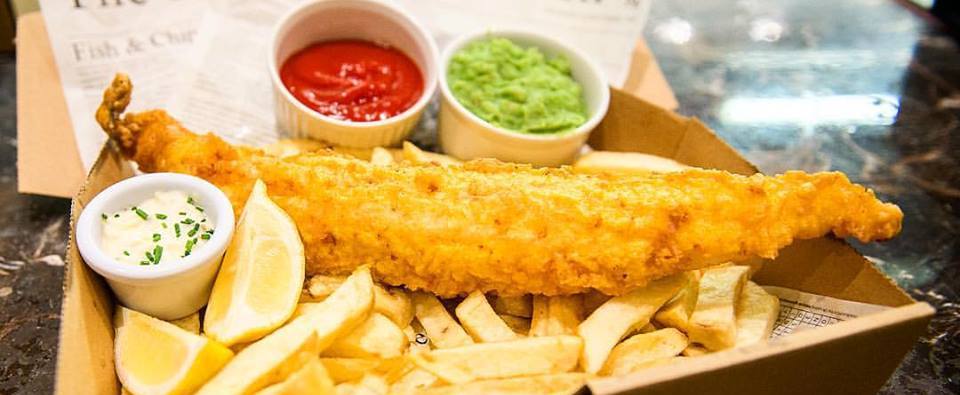I was in a pub in Sweden the other day and saw a very familiar sight: people eating fish and chips. It’s quite a common pub food in Sweden. For me, though, it’s not really fish and chips. I understand the popularity, but I mean, half the pubs don’t even serve vinegar!
Fish and chips have always been a part of my life since I was a child. Back then, it was my dad sending me down to the local “chippy” to get two warm fish and chips during those cold winter months. Where I lived, we had a lot of options: The Lantern, Pisces, Mr. T’s, Del’s, and the local Chinese takeaway, all of which served delicious, hot fish and chips.
Over the past few visits back to the UK, it’s become evident how out of date fish and chips have become. Over the years, The Lantern, Del’s, Mr. T’s, and Pisces have all closed. It’s a real shame, as they were a part of my childhood. But there are many reasons why this is happening all over the UK.
Many traditional chip shops are family-run, and the younger generation is simply no longer interested in this time-honored tradition. The owners of several of the shops I mentioned have retired and moved overseas—fair play to them.
But another reason is the rising costs within the food industry. These are mainly due to:
- Soaring ingredient costs: The price of white fish, primarily cod and haddock, has dramatically risen, partly due to supply chain disruptions and overfishing, which has reduced availability.
- Increased energy prices: Energy costs have surged, making it more expensive for chip shops to cook and fry food, which is energy-intensive.
- Rising potato prices: The cost of potatoes, another staple in fish and chips, has increased due to poor harvests linked to unfavorable weather conditions, such as heatwaves.
- Higher packaging costs: The cost of packaging materials, particularly those that comply with environmental regulations, has also gone up.
- Inflation and labor costs: General inflation, as well as rising wages due to labor shortages, has added further pressure on chip shops, pushing prices up.
- Geopolitical factors: The Russia-Ukraine conflict has affected the global supply of cooking oil and fish, as both countries are major exporters of key ingredients used in the fish and chips industry.
The average price now is around €15, according to the latest reports. I know inflation rises, but I remember when it was around €3.50!
It’s a shame that this tradition, which seems so popular in other countries, is dying out in the UK.
Some are keeping the tradition alive, and for those who are, I applaud you all.




